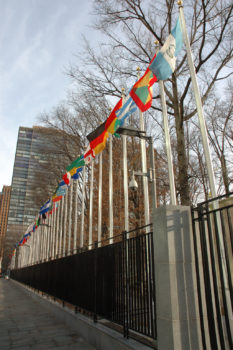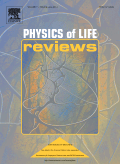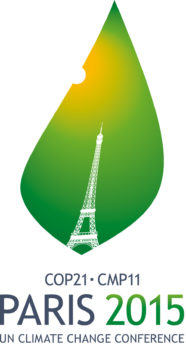Alessandro Tavoni

Alessandro’s research spans several topics in environmental economics, primarily related to the drivers of cooperation in the (climate) commons. This is tackled through a combination of non-cooperative and evolutionary game theory models, as well as laboratory experiments, surveys and simulations, in an effort to shed light on the potential solutions to environmental dilemmas.
Background
Alessandro holds a PhD in Economics from Universita’ Ca’ Foscari di Venezia (2011). He is also an Associate Researcher at Fondazione Eni Enrico Mattei (FEEM), as well as a member of the Levin Lab at Princeton University and an International Fellow of the Sogang Experimental Economics Laboratory in Korea.
Research interests
- Game theory;
- International environmental agreements;
- Experimental economics;
- Coupled social-ecological systems.
Research
Research - 2024
The rapid, human-induced changes in the Earth system during the Anthropocene present humanity with critical sustainability challenges. Social-ecological systems (SES)... Read more

Research - 2023
Financial advisers recommend a diverse portfolio to respond to market fluctuations across sectors. Similarly, nature has evolved a diverse portfolio... Read more

Research - 2021
Increasing the uptake of behaviours that are not yet niche is crucial to the sustainable energy transition. The authors of this paper test a novel approach to foster the uptake of renewable energy tariffs among a large sample of households in England and Wales. Read more

Research - 2020
Higher temperatures expected by midcentury increase the risk of shocks to crop production, while the interconnected nature of the current... Read more

Research - 2019
Climate change and global poverty are the most pressing issues of this century. If insufficiently addressed, climate change will exacerbate... Read more

With the aid of a lab experiment, we explored how imperfect monitoring and punishment networks impacted appropriation, punishment and beliefs... Read more

Many public goods cannot be provided directly by interested parties (e.g. citizens), as they entail decision-making at nested hierarchical scales:... Read more

Climate change is a global externality that has proven difficult to address through formal institutions alone due to the public... Read more

Research - 2018
We study the impact of loss-aversion and the threat of critical damages from insufficient pollutant abatement, which we jointly call... Read more

This study simulates an environmental dilemma: a group of individuals sharing a natural resource from which they can individually gain. It shows how network structure impacts social welfare and reveals the cost of exclusively relying on perfect peer monitoring and punishment to enhance cooperation. Read more

Research - 2017
Paper analyses the perceived success of the climate negotiations in a sample of 656 experts involved in international climate policy. Read more

Abstract The recent global climate change agreement in Paris leaves a wide gap between pledged and requisite emissions reductions in keeping... Read more

Abstract The bottom-up approach promoted through the Paris Agreement and signed in 2016 requires the definition of accurate and realistic... Read more

Abstract We explore the prospects of cooperation in a threshold public bad game. The experiment’s setup allows us to investigate... Read more

Abstract Effective responses to climate change may demand a radical shift in human lifestyles away from self-interest for material gain,... Read more

Abstract Ensuring food security requires food production and distribution systems function throughout disruptions. Understanding the factors that contribute to the... Read more

This paper surveys the existing empirical evidence on the scope for cooperation in the climate commons and on the effectiveness... Read more

Research - 2016
This paper analyzes the decision of “green” economists to participate in the carbon offset market, and how this decision is... Read more

Abstract The market for voluntary carbon offsets has grown steadily in the last decade, yet it remains a very small... Read more

Abstract We investigate the effect of domestic politics on international environmental policy by incorporating into a classic stage game of... Read more

While a growing proportion of global food consumption is obtained through international trade, there is an ongoing debate on whether this increased reliance on trade benefits or hinders food security, and specifically, the ability of global food systems to absorb shocks due to local or regional losses of production. This paper introduces a model that simulates the short-term response to a food supply shock originating in a single country. Read more

The recent global climate change agreement in Paris leaves a wide gap between pledged and requisite emissions reductions in keeping... Read more

The market for voluntary carbon offsets has grown steadily in the last decade, yet it remains a very small niche.... Read more

We study the impact of loss-aversion and the threat of catastrophic damages, which we jointly call threshold concerns, on international... Read more

We live in a world characterized by discontinuities, where thresholds for abrupt and irreversible change are omnipresent, both in economic... Read more

Spatially diverse trends in population growth, climate change, industrialization, urbanization and economic development are expected to change future food supply... Read more

We assess the robustness of cooperation to environmental variability in a stylized model of a community that harvests a shared resource. Read more

Research - 2015
Local interactions and network structures appear to be a prominent feature of many environmental problems. This paper discusses a wide... Read more

The provision of global public goods, such as climate change mitigation and managing fisheries to avoid overharvesting, requires the coordination of national contributions. Read more

Overview Cooperation between countries is required to overcome major societal problems, such as climate change. However, rational logic dictates that... Read more

Research - 2014
Academic contributions to climate change policy have been constrained by methodological and terminological differences, so we discuss how programmes aimed at cross-disciplinary education and involvement in governance may help to unlock scholars' potential to propose new solutions. Read more

Papers from the ‘Strategies in Climate Negotiations: Theory and Experiments’ session at the Fifth World Congress of Environmental and Resource... Read more

Physics of Life Reviews Read more

Stratospheric injection of sulphate aerosols has been advocated as an emergency geoengineering measure to tackle dangerous climate change, or as a stop-gap until atmospheric carbon dioxide levels are reduced. But it may not prove to be the game-changer that some imagine. Read more

Many natural systems involve thresholds that, once triggered, imply irreversible damages for the users. Although the existence of such thresholds is undisputed, their location is highly uncertain. Read more

Working Paper 146 Abstract Growing empirical evidence points to the importance of social norms for achieving sustainable use of common... Read more

Working Paper 145 Abstract Recent research in the field of network economics has shown how explicitly modelling the network structure... Read more

Research - 2013
Abstract Ecological regime shifts are rarely purely ecological. Not only is the regime shift frequently triggered by human activity, but... Read more

Reference Tavoni, A. 2013. Game theory: Building up cooperation. Nature Climate Change. Read more

Reference Tavoni, A., and Dannenberg, A. February 2013. Coordinating to protect the global climate. Chapter 2 of book, ‘Analyzing Global Environmental... Read more

Working Paper 105 Abstract Ecological regime shifts are rarely purely ecological. Not only is the regime shift frequently triggered by... Read more

Research - 2012
Working Paper 87 Abstract The theory of international environmental agreements overwhelmingly assumes that governments engage as unitary agents. Each government... Read more

Abstract This paper examines the role of other-regarding behavior as a mechanism for the establishment and maintenance of cooperation in... Read more

Research - 2011
Working Paper 64 Abstract We explored experimentally how threshold uncertainty affects coordination success in a threshold public goods game. Whereas... Read more

Abstract International efforts to provide global public goods often face the challenges of coordinating national contributions and distributing costs equitably... Read more

Working Paper 35 Abstract This paper examines the role of other-regarding behavior as a mechanism for the establishment and maintenance... Read more

Working Paper 34 Abstract International efforts to provide global public goods often face the challenges of coordinating national contributions and distributing... Read more

Events
Events - 2021
News
News - 2017
Carbon Brief, 10 March 2107 Read more

News - 2015
Climate change is a ‘wicked problem’, in the terms of game theorists. Collectively, all countries should act on climate change.... Read more

News - 2014
Injecting particles into the stratosphere to shade and cool the Earth will never stop climate change. This is the shocking claim made in the July issue of Nature Climate Change by an international group of prominent scientists Read more


News - 2013
La Gran Historia This content is no longer available online. Read more

News - 2012
In keeping with expectations, recent multilateral climate change talks in Doha have achieved very little. Yet, the good news is... Read more


